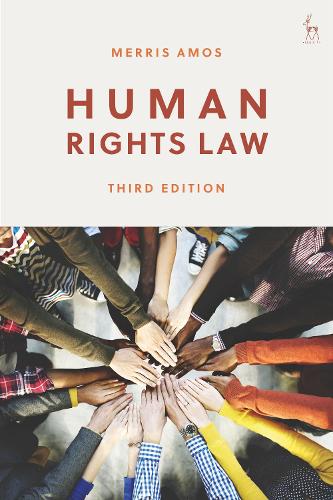
Human Rights Law
(Hardback)
Available Formats
Publishing Details
Human Rights Law
By (Author) Merris Amos
Bloomsbury Publishing PLC
Hart Publishing
21st October 2021
United Kingdom
Classifications
Tertiary Education
Non Fiction
Human rights, civil rights
342.41085
Physical Properties
Hardback
832
Width 169mm, Height 244mm
1588g
Description
This textbook comprehensively examines and analyses the interpretation and application of the United Kingdom's Human Rights Act 1998. The third edition has been fully updated to include the last seven years of case law. Part I covers key procedural issues including: the background to the Act; the relationship between UK courts and the European Court of Human Rights; the definition of victim and public authority; determining incompatibility including deference and proportionality; the impact of the Act on primary legislation; and damages and other remedies for the violation of Convention rights. In Part II of the book, the Convention rights, as interpreted and applied by United Kingdom courts, are examined in detail. All of the key Convention rights are discussed including: the right to life; freedom from torture and inhuman or degrading treatment or punishment; the right to liberty; fair trial; the rights to private life, family life and home; freedom of religion and belief; freedom of expression; the right to peaceful enjoyment of possessions; and the right to freedom from discrimination in the enjoyment of Convention rights. The third edition of Human Rights Law will be invaluable for those teaching, studying and practising in the areas of United Kingdom human rights law, constitutional law and administrative law.
Reviews
This is an impressive piece of scholarship. It manages to be comprehensive in its scope, analytically rigorous, yet accessible. -- Dr Peter Coe * University of Reading *
Thorough, up-to-date analysis of everything to do with the HRA. Very interesting background information, before going into details about each of the HRA provisions. Non-technical, accessible language. Good structure. -- Dr Nataly Papadopoulou * University of Leicester *
Covers a wide range of topics, enabling students to engage fully and critically with the subject. -- Dr Michelle Weldon-Johns * Abertay University *
A very valuable and up-to-date addition to existing work in this area. -- Helen Fenwick * Durham University *
This is an excellent volume. It deals with the context to, the contents of and the effects flowing from the Human Rights Act 1998 with respectable clarity. I think students will find it very useful and accessible. -- Dr Conor McCormick * Queen's University Belfast *
A very good (and accessible) examination of the law on the Human Rights Act, as well as an exploration of the Convention rights. -- Samuel White * University of the West of Scotland *
This is an excellent account of human rights in UK Law and under the ECHR and I recommend it to all students. -- Steve Foster * Coventry University *
[Human Rights Law] is well structured and informative Amos has done well to compress the case law on the Act into 178 pages without omitting reference to all of the key casesIt should serve as a very useful book for students and practitioners alike. -- Robert Weir * New Law Journal (of the second edition) *
This is a solid textbook on domestic human rights lawa real boon to students and those approaching the field for the first time. -- Roger Smith, Director of Justice * New Law Journal (of the first edition) *
The first work in which the interpretation and application of the act, by courts in England and Wales, is comprehensively examined and analysed. -- A G Noorani * Economic and Political Weekly (of the first edition) *
The introductory chapter, providing background and dealing with interpretation, brings together a wide range of useful information and is a good starting point for the keen student The book is characterised by clarity of explanation combined with detailed treatment that manages to incorporate much more than one might expect from a book that addresses such wide-ranging issues. -- Peter Halstead * The Law Teacher (of the first edition) *
Author Bio
Merris Amos is Professor of Human Rights Law at Queen Mary, University of London, UK.
